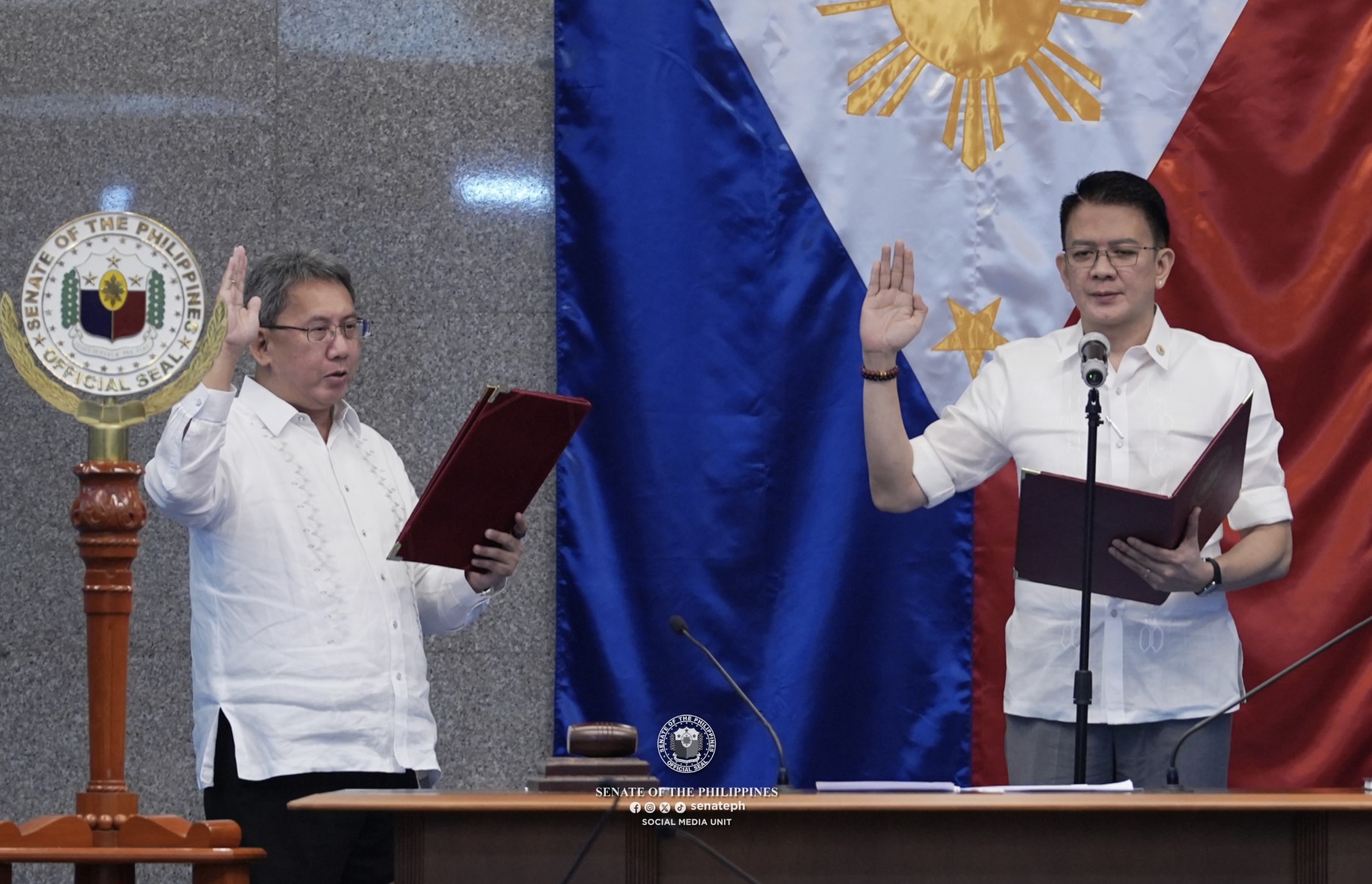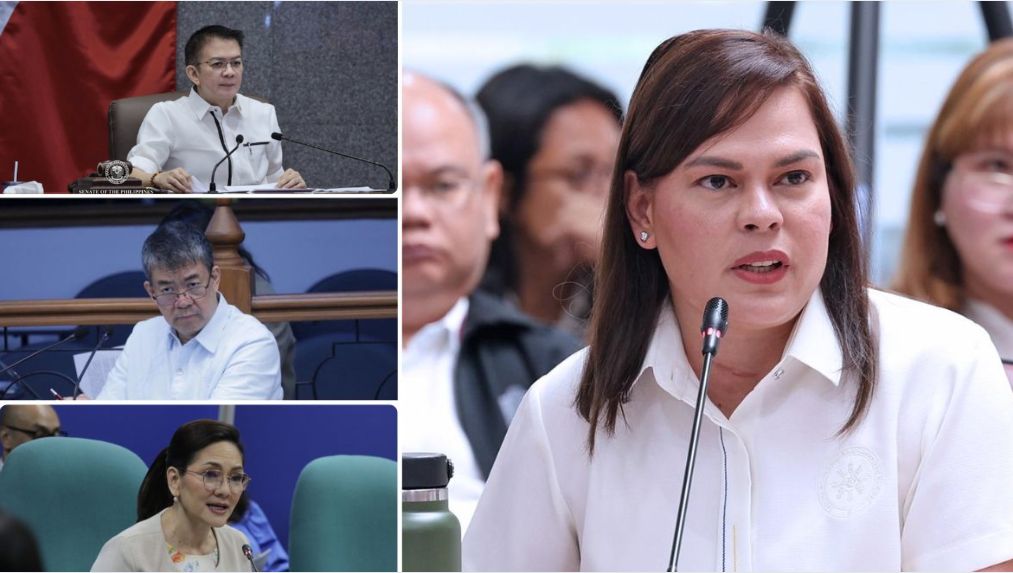
By Wilnard Bacelonia | Philippine News Agency
The Senate on Monday evening referred the impeachment complaint against Vice President Sara Duterte to its Committee on Rules, formally initiating proceedings that could lead to the convening of an impeachment court.
The move came after Senate President Francis Escudero took his oath as presiding officer of the impeachment court, in a symbolic step seen as a prelude to the trial.
Sen. Joel Villanueva made the motion to refer the complaint to the Committee on Rules during the plenary session, following a manifestation from Minority Leader Aquilino “Koko” Pimentel III urging the chamber to immediately begin trial proceedings as mandated by the Constitution.
Pimentel cited Article XI, Section 3 (4) of the 1987 Constitution, which states that once a verified complaint is endorsed by at least one-third of the House of Representatives, the Senate “shall forthwith proceed” to try the case.
“We are merely following the letter and spirit of the Constitution,” Pimentel said in his motion, which was also seconded by Senate Deputy Minority Leader Risa Hontiveros.
The minority’s motion included concrete steps: swearing in the Senate President as presiding officer, placing senators under oath as judges, calendaring the trial, and issuing a writ of summons to the Vice President.
Escudero’s oath as presiding officer, administered on the floor, came more than four months after the House of Representatives impeached Duterte on charges of corruption, misuse of confidential funds, and threatening President Ferdinand R. Marcos Jr. and other officials.
The impeachment complaint was transmitted to the Senate on Feb. 5.
The Committee on Rules is now tasked with determining the schedule and procedures for the trial, including the formal swearing-in of senators as judges.
The development came amid pressure from the minority bloc and civil society groups to act within the 100-day constitutional window that has already lapsed.
Duterte’s allies, meanwhile, are drafting a resolution seeking dismissal of the case on grounds of inaction.
If convicted by two-thirds of the Senate, Duterte would be removed from office and permanently barred from holding public office.
This is the fifth impeachment case in Philippine history and the first involving a vice president.
The Senate is expected to take further action when it resumes session on June 11. Congress adjourns sine die on June 30.

Senate minority demands start of VP Sara impeachment trial
The Senate minority bloc made a unified and forceful appeal on the Senate floor to immediately convene as an impeachment court and begin the trial of Duterte, denouncing months of delay as a betrayal of constitutional duty.
Pimentel raised a question of privilege, warning that the Senate’s inaction since receiving the articles of impeachment on Feb. 5 has sparked public distrust and suspicion that the trial is being deliberately stalled or even quietly abandoned.
“Respected academic institutions and legal organizations have spoken with one voice: the Senate must comply with its constitutional duty to ‘forthwith proceed’ with the impeachment trial,” Pimentel said, citing public statements from the UP College of Law, San Beda Graduate School of Law, Ateneo School of Government, and other institutions.
He said the constitutional language is unequivocal, “The word ‘forthwith’ means without delay, agad-agad (immediately). There is no ‘if,’ no ‘unless,’ no ‘when convenient’.”
In a parallel manifestation, Hontiveros seconded the minority’s formal motion, “The Constitution is clear. The trial must begin immediately. Walang pag-iimbot. Agad-agad.”
She added that “anyone who objects to commencing the trial is objecting to the Constitution itself.”
Hontiveros said retired Supreme Court Justice Adolfo Azcuna, a framer of the Constitution, explicitly defined “forthwith” as “immediately and without unreasonable delay.”
She also warned that compressing the trial into just three days, after months of delay, would mock the gravity of the charges and the integrity of the process.
Pimentel said the Senate had already lost four months without a valid justification, “We had a choice every step of the way—and our choice was to delay.”
Pimentel urged the chamber to immediately suspend legislative business and convene as the impeachment court, citing precedents that distinguish the Senate’s legislative and non-legislative functions.
“There is no constitutional requirement that impeachment trials can only happen when Congress is in session. The Senate’s authority comes directly from Article XI,” he said, citing the Supreme Court ruling in Pimentel v. Joint Committee of Congress, which upheld the validity of non-legislative functions beyond session periods.
Pimentel cautioned that failure to act would deepen the erosion of public trust in the Senate, “Trial is the most fair course of action. Let the evidence be heard. Let the Vice President defend herself. That is what the Constitution demands.”
